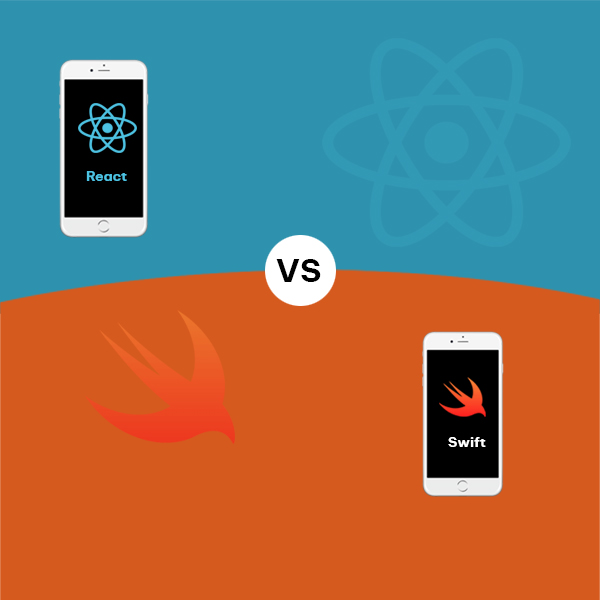React Native Vs Swift: Which iOS App Platform Will Win in 2023?
Visit Our Service: https://www.connectinfosoft.com/looking-for-react-native-application-development-service/
As the world of mobile app development continues to evolve, developers must decide which platform to use in order to create the best apps possible. In the past few years, React Native App Development and Swift for iOS App Development have become two of the most popular platforms for creating iOS apps. In 2023, which platform will reign supreme? This blog post will explore the pros and cons of React Native App Development and Swift for iOS App Development and make a prediction about which platform will be the go-to choice for iOS app developers in 2023.
The History of React Native and Swift:
React Native and Swift are two of the leading platforms for mobile app development. React Native was initially created at a Hackathon organized by Facebook in 2013, and the first version of React Native was released in 2015. React Native leverages the JavaScript and JSX coding syntaxes and operates in the background on client devices. Swift only allows for the creation of apps for Apple platforms, but React Native allows for the creation of cross-platform apps.
Furthermore, JavaScript is the most extensively used programming language in the world, whereas Swift isn't even in the top ten. This makes React Native development more attractive to developers who wish to target multiple platforms. As a result, a lot of mobile app companies are focusing on React Native app development instead of traditional iOS mobile app development. With its flexibility and compatibility, React Native is quickly becoming the go-to platform for building modern mobile applications.
Popularity Contest between React Native and Swift:
In recent years, the mobile app development world has become increasingly divided between two major options: React Native and Swift. Developed by Facebook and Apple respectively, both options have their pros and cons and each have been adopted by different types of mobile app companies. But which is the most popular among them?
Let's start by looking at the numbers. According to a recent survey, the usage rate for React Native Development was 28%, compared to 24% for Swift. This means that more mobile app companies are using React Native for their projects. Additionally, the survey found that mobile app companies that use React Native tend to have a higher satisfaction rate than those who use Swift.
Looking further, React Native also has the advantage of being used across multiple platforms including Android, iOS, and Windows. Swift on the other hand, is only used for iOS mobile app development. As a result, React Native Mobile App Companies have the ability to reach a much larger market than companies that focus solely on Swift.
It is clear that React Native currently enjoys a significant lead over Swift when it comes to popularity. However, with Apple making improvements to its platform every year, there is no telling how the situation may shift in the future.
Future of React Native and Swift:
The battle between native app development and React Native continues as developers debate which platform will win in the future. React Native stands out from other mobile app frameworks because it's a JavaScript library and a toolkit on top of native UI components, making it easier to quickly develop mobile applications with a minimal amount of code. Native apps, on the other hand, necessitate an understanding of the native platform as well as a staff capable of supporting the programme throughout its whole lifecycle.
When evaluating the ideal mobile app development strategy, there are many factors to consider, such as development time, platform support, cost, scalability, and user experience. While React Native has access to the entire JavaScript ecosystem including the DOM and Canvas, it doesn't have access to the platform's UI components like native apps do. This means that the user experience may not be as seamless as a native app.
As of now, it's hard to predict what technology will win out in 2023. However, one thing is for sure: both React Native and Swift offer developers powerful tools for creating world-class mobile applications. It's important for developers to consider all aspects of their projects before choosing the best platform for specific needs.
Pros and Cons of React Native and Swift:
There are two main platforms available for the development of mobile apps. React Native and Swift have special benefits and drawbacks of their own.
React Native has several benefits that have made it increasingly popular among developers. It offers quicker time-to-market and cost efficiency, without sacrificing user experience. Additionally, it allows for Hot Reloading & Live Reloading, and its developer community is growing at an impressive rate. However, there can be platform-wise User Interface adjustments needed, limited APIs integrations & third-party components available, difficulty in debugging & troubleshooting, and still need for native developers.
Native app development has full OS platform & integration support, superior performance, better control over the code and UI/UX/AI possibilities as well as access to new features. On the downside, it is a much more expensive and time-consuming process, requires more development and maintenance logistics, and relies heavily on Facebook's React Native Mobile App Company.
Tags: React Native Dev Team, React Native Development, React Native App Development, Looking for React Native Developer, React Native Apps, React Native Application Development, React Native Developers, Looking React Native Developers, Looking React Native Mobile App Company, Hire React Native Developers, New York, Canada, Florida, USA, UK, Australia
